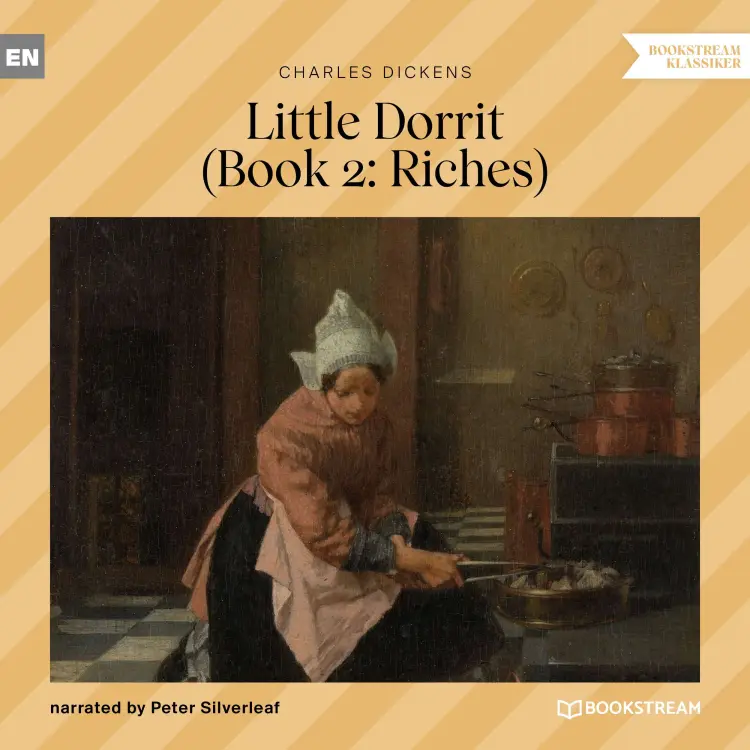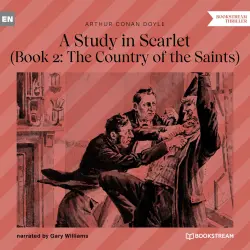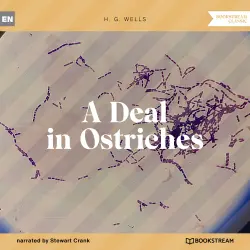
Little Dorrit - Book 2 - Riches
Charles Dickens
Unabridged
16 Stunden 41 Minuten
Hinweis: Für das Abspielen der Hörbücher oder Hörspiele können auf den jeweiligen Plattformen, wie z.B. Spotify, Kosten anfallen. Lismio hat keinen Einfluss darauf, welche Hörbücher und Hörspiele bei dem Service verfügbar sind.
Einige Artikel enthalten Affiliate-Links (gekennzeichnet mit einem Sternchen *). Wenn ihr auf diese Links klickt und Produkte kauft, erhalten wir eine kleine Provision, ohne dass für euch zusätzliche Kosten entstehen. Eure Unterstützung hilft, diese Seite am Laufen zu halten und weiterhin nützlichen Content zu erstellen. Danke für eure Unterstützung!
Vom Herausgeber
Book 2: Riches: Little Dorrit is a novel by Charles Dickens, originally published in serial form between 1855 and 1857. The story features Amy Dorrit, youngest child of her family, born and raised in the Marshalsea prison for debtors in London. Arthur Clennam encounters her after returning home from a 20-year absence, ready to begin his life anew.
The novel satirises the shortcomings of both government and society, including the institution of debtors' prisons, where debtors were imprisoned, unable to work, until they repaid their debts. The prison in this case is the Marshalsea, where Dickens' own father had been imprisoned. Dickens is also critical of the lack of a social safety net, the treatment and safety of industrial workers, as well as the bureaucracy of the British Treasury, in the form of his fictional "Circumlocution Office". In addition, he satirises the stratification of society that results from the British class system.
The now wealthy Dorrits decide that they should tour Europe as a newly respectable rich family. They travel over the Alps and take up residence for a time in Venice, and finally in Rome, displaying pride over their new-found wealth and position, unwilling to tell their past to new friends. Little Dorrit finds it difficult to adjust to their wealth and new social position, and slowly comes to appreciate the new places and new sights. Fanny adjusts rapidly to the ways of society, and is sought by the same young man, Edmund Sparkler, who pursued her in her poverty in London, but with a new start that is acceptable to his mother. In Rome, at a party, Mr Dorrit falls ill, and dies at their lodgings. His distraught brother Frederick dies that same night. Little Dorrit, left alone, returns to London to stay with newly married Fanny and her husband, the dim-witted Edmund Sparkler.
The novel satirises the shortcomings of both government and society, including the institution of debtors' prisons, where debtors were imprisoned, unable to work, until they repaid their debts. The prison in this case is the Marshalsea, where Dickens' own father had been imprisoned. Dickens is also critical of the lack of a social safety net, the treatment and safety of industrial workers, as well as the bureaucracy of the British Treasury, in the form of his fictional "Circumlocution Office". In addition, he satirises the stratification of society that results from the British class system.
The now wealthy Dorrits decide that they should tour Europe as a newly respectable rich family. They travel over the Alps and take up residence for a time in Venice, and finally in Rome, displaying pride over their new-found wealth and position, unwilling to tell their past to new friends. Little Dorrit finds it difficult to adjust to their wealth and new social position, and slowly comes to appreciate the new places and new sights. Fanny adjusts rapidly to the ways of society, and is sought by the same young man, Edmund Sparkler, who pursued her in her poverty in London, but with a new start that is acceptable to his mother. In Rome, at a party, Mr Dorrit falls ill, and dies at their lodgings. His distraught brother Frederick dies that same night. Little Dorrit, left alone, returns to London to stay with newly married Fanny and her husband, the dim-witted Edmund Sparkler.








